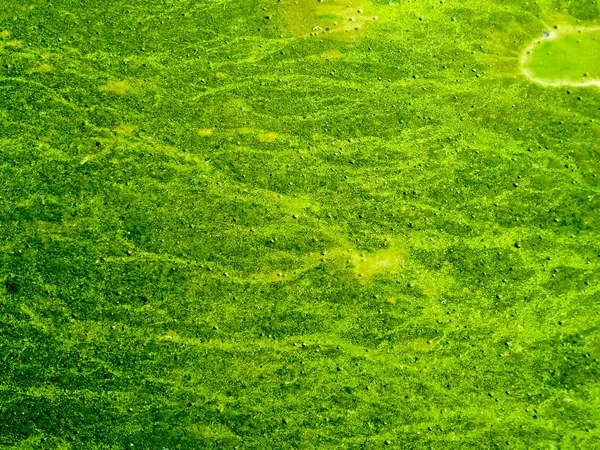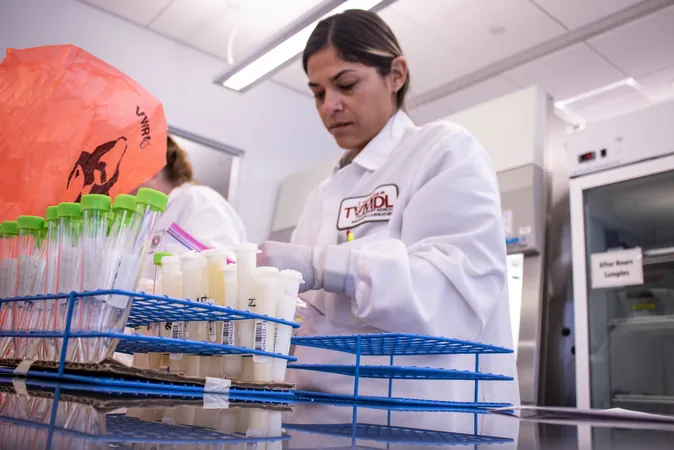
Meet the 7,000-Year-Old Algae That Defied Time and Thrives Again!
2025-04-06
Author: Jacques
Reviving Ancient Life Under the Baltic Sea
Deep beneath the Baltic Sea, an astonishing discovery has occurred: ancient phytoplankton, encapsulated in sediment for a staggering 7,000 years, have been revived by scientists. This groundbreaking research not only offers a glimpse into the resilience of life but underscores the mysteries of our planet's ecological past.
The 2021 Expedition
During a daring 2021 expedition, researchers extracted sediment cores from 240 meters below the sea surface in the Eastern Gotland Deep. Within these layers, they found dormant cells of algae that had withstood the test of time, entering a state of dormancy to survive unfavorable conditions such as darkness, extreme cold, and nutrient shortages. This intriguing survival strategy is shared across many species, from bacteria to mammals, illustrating nature's remarkable adaptability.
Vitality of Revived Algae
What is truly exciting, however, is the vitality of these revived algae. Once they were put back into a laboratory environment, the 7,000-year-old organisms began to show growth and photosynthesis rates that closely match those of contemporary algal strains. Remarkably, these ancient cells, after millennia without light or nutrients, not only resumed their biological processes but also thrived, actively dividing and producing oxygen just like their modern counterparts.
Resurrection Ecology
This revival is part of a wider scientific movement known as "resurrection ecology," a field that has even seen dormant viruses—up to 50,000 years old—being brought back to life. By awakening these long-dormant organisms, researchers are essentially rewinding the ecological clock, providing insights into the environmental conditions that prevailed thousands of years ago, including variations in oxygen levels, salinity, and temperature.
Genetic Insights
Adding another dimension to the findings, genetic analysis of the resurrected algae, identified as Skeletonema marinoi, revealed distinct genetic groups correlated with specific historical periods in the Baltic Sea’s ecological timeline. This confirmation serves as a testament to the algae’s authenticity and illustrates how their populations have evolved in response to dramatic environmental changes over millennia.
Future Implications
The study, led by biologist Sarah Bolius and part of the innovative PHYTOARK research initiative, opens exciting avenues for "time-jump experiments." Such experiments aim to track ecological shifts over thousands of years using living organisms rather than relying solely on fossil records or ancient DNA fragments.
Conclusion
This remarkable journey to revive the ancient algae not only enhances our understanding of historical ecosystems but also raises questions about future resilience as climate change presents new challenges to marine life. What other secrets lie dormant beneath the sea? The answers could unlock knowledge vital for conserving our planet's biodiversity in the face of rapid environmental change. Stay tuned for more astonishing scientific discoveries that could change our world!









 Brasil (PT)
Brasil (PT)
 Canada (EN)
Canada (EN)
 Chile (ES)
Chile (ES)
 Česko (CS)
Česko (CS)
 대한민국 (KO)
대한민국 (KO)
 España (ES)
España (ES)
 France (FR)
France (FR)
 Hong Kong (EN)
Hong Kong (EN)
 Italia (IT)
Italia (IT)
 日本 (JA)
日本 (JA)
 Magyarország (HU)
Magyarország (HU)
 Norge (NO)
Norge (NO)
 Polska (PL)
Polska (PL)
 Schweiz (DE)
Schweiz (DE)
 Singapore (EN)
Singapore (EN)
 Sverige (SV)
Sverige (SV)
 Suomi (FI)
Suomi (FI)
 Türkiye (TR)
Türkiye (TR)
 الإمارات العربية المتحدة (AR)
الإمارات العربية المتحدة (AR)